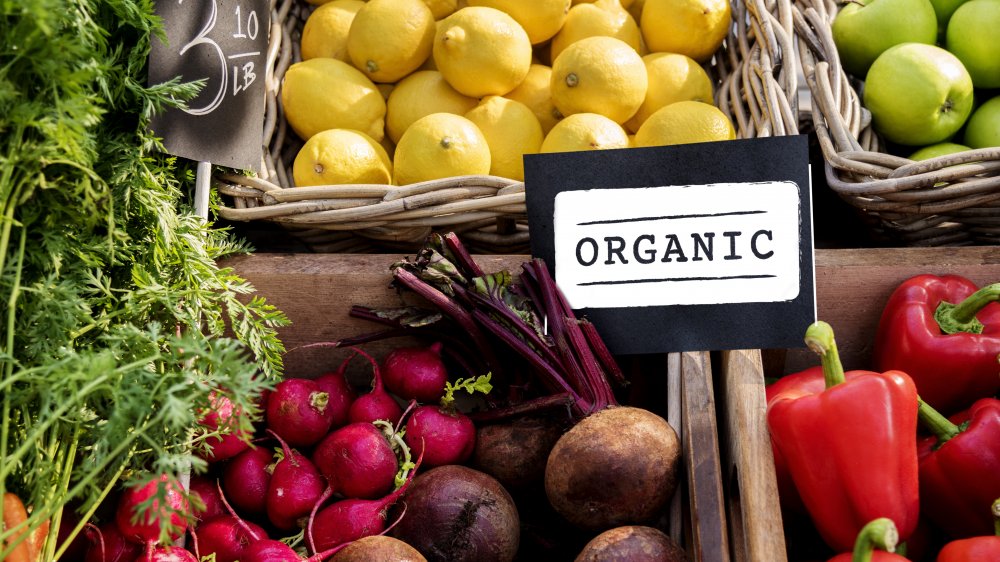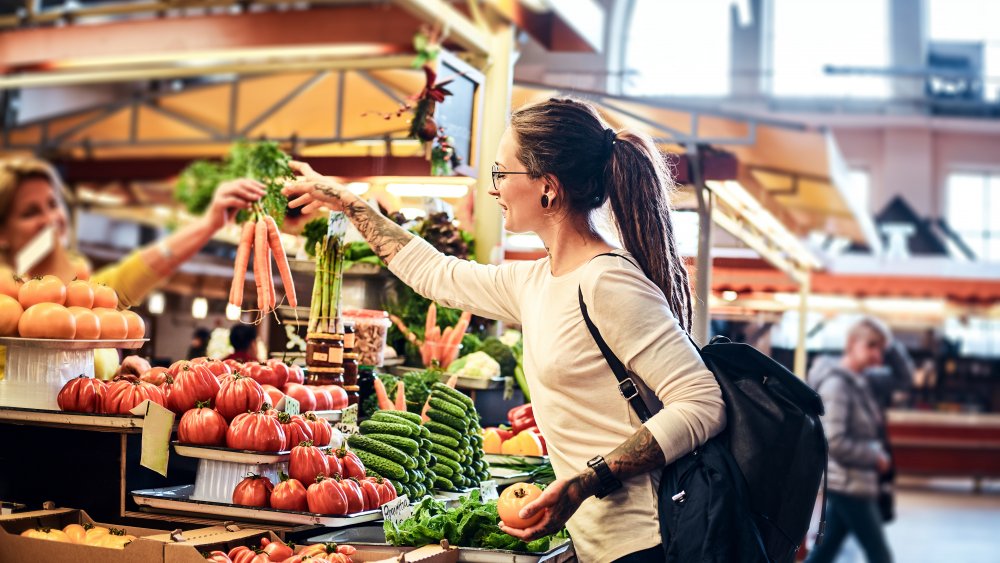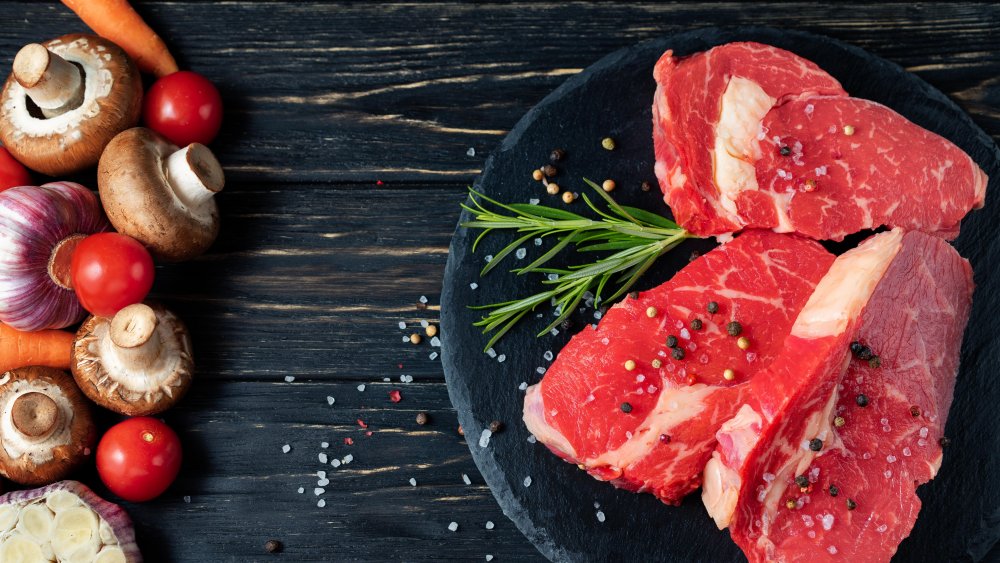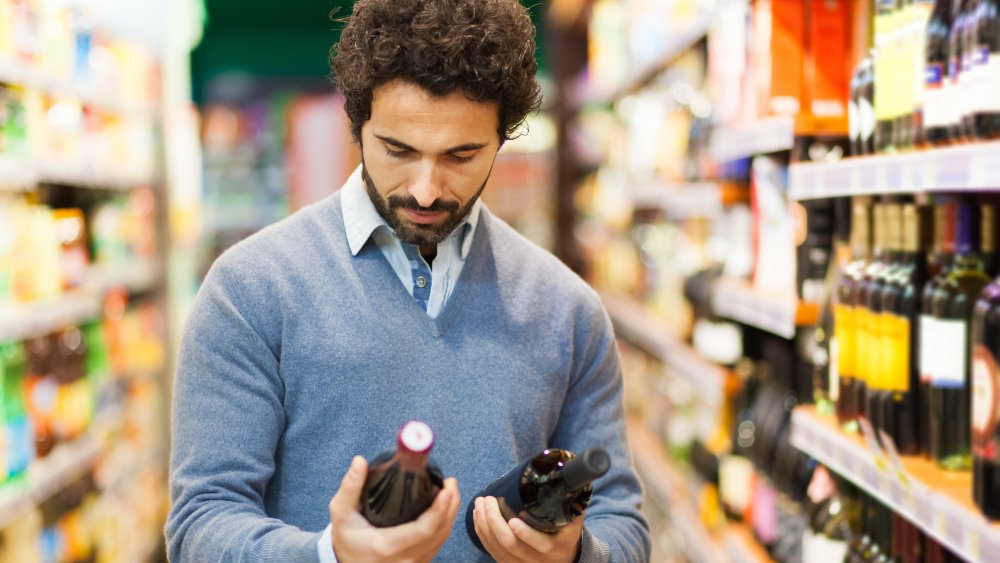What Does Organic Food Really Mean?
Sussing out the truth about organic food can be tricky. There's a lot of misinformation out there, and it can be tough to sort fact from fiction. Is organic food grown without pesticides? Does organic food contain toxins? What's the difference between organic and GMO-free? Is organic food better for you than food that doesn't carry the organic label? Is organic food just a scam? Why is organic food so much more expensive than its nonorganic counterparts?
Without a doubt, there's a lot of ground to cover if you are wondering about whether you should buy organic-labeled food or not. Sometimes, in situations like this one, it's helpful to simply go back to the beginning: What does organic food really mean?
What organic produce really means
According to their website, for the United States Department of Agriculture (USDA) to issue an organic label, it looks at what isn't there, not what is. Specifically, organic produce must be grown without using any substance from the USDA's very long list of prohibited substances. While that list is mostly made up of man-made pesticides and fertilizers, it's a myth that all organic produce is grown without any synthetic pesticides or fertilizers.
This doesn't mean organic-labeled produce is a scam, though. According to the USDA, if a farmer or grower wants to use synthetic substances on their produce, they have to get approval first — and they'll only get that approval if the substance they hope to use isn't harmful to the health of humans or the environment.
What organic meat really means
For meat to have an organic label, the USDA says that it requires the animals the meat is coming from to be raised in an environment that allows the animal to behave as they would naturally. For instance, munching grass from a wide-open pasture is considered a natural behavior for beef cattle. So for that steak you're thinking of buying to be labeled organic, it will have had to have come from an animal that was allowed to do that. If the animal does require pre-packaged feed (think chickens!), that food has to be organic, too. Finally, animals that are raised for human consumption can't have been given antibiotics or hormones at any point.
The rules about what meats can be labeled organic are pretty dynamic — they tend to evolve over time, and things like the minimum size of a grazing pasture or the number of hours chickens must be allowed outside are always changing. However, these are the three most important rules regarding organic meat, and they have to be followed to get the label.
What other food can be called organic?
If you've walked around a grocery store lately, you probably don't need to be reminded that there's a lot more you can buy besides meat and produce. So what about all of the other food that hypes itself as organic — from the aisles to the frozen section, and everywhere in between. Nowadays you can buy everything from cereal to K-cups that sport an organic label, so it helps to know what it means when pre-packaged food is labeled organic, too. The most important thing to remember is that the only way multi-ingredient or prepackaged food can be called 100 percent organic is that artificial additives cannot be used, and that all of the ingredients that go into the product should also be organic.
Here's where it can get a little confusing, though — sometimes, you have to use an ingredient that isn't organic, because it simply can't be organic. For instance, you can't make bread without baking soda, and baking soda can't be certified organic. That doesn't mean, though, there's no such thing as organic bread. In instances like this one, here's the thing you need to remember: for the USDA to issue an "organic" label, a product has to have been put together using at least 70 percent organic ingredients, and the remaining ingredients can't be on the USDA's list of prohibited substances.
Regulations, rules, and all the other nitty-gritty details in what is and what isn't organic can be a vast, dry landscape of information, and one that's always changing, at that. In the end, though, these are the basic rules that organic food farmers and producers have to follow, and that's a great place to start.



